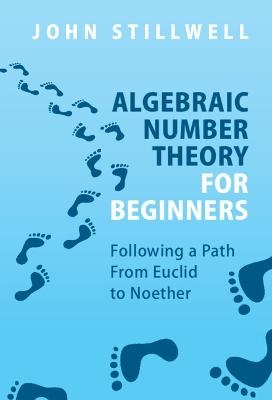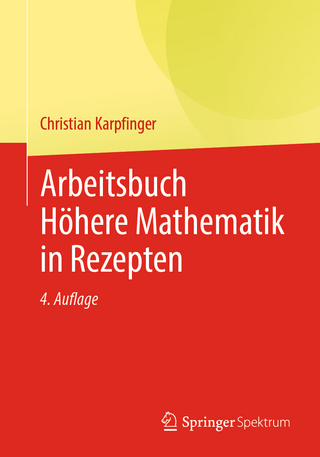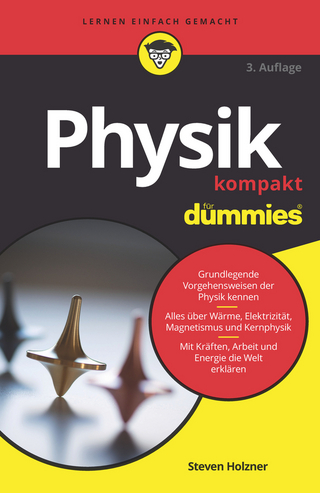
Algebraic Number Theory for Beginners
Following a Path From Euclid to Noether
Seiten
2022
Cambridge University Press (Verlag)
978-1-316-51895-3 (ISBN)
Cambridge University Press (Verlag)
978-1-316-51895-3 (ISBN)
This book, meant for undergraduate mathematics students and teachers, introduces algebraic number theory through problems from ordinary number theory that can be solved with the help of algebraic numbers, using a suitable generalization of unique prime factorization. The material is motivated by weaving historical information throughout.
This book introduces algebraic number theory through the problem of generalizing 'unique prime factorization' from ordinary integers to more general domains. Solving polynomial equations in integers leads naturally to these domains, but unique prime factorization may be lost in the process. To restore it, we need Dedekind's concept of ideals. However, one still needs the supporting concepts of algebraic number field and algebraic integer, and the supporting theory of rings, vector spaces, and modules. It was left to Emmy Noether to encapsulate the properties of rings that make unique prime factorization possible, in what we now call Dedekind rings. The book develops the theory of these concepts, following their history, motivating each conceptual step by pointing to its origins, and focusing on the goal of unique prime factorization with a minimum of distraction or prerequisites. This makes a self-contained easy-to-read book, short enough for a one-semester course.
This book introduces algebraic number theory through the problem of generalizing 'unique prime factorization' from ordinary integers to more general domains. Solving polynomial equations in integers leads naturally to these domains, but unique prime factorization may be lost in the process. To restore it, we need Dedekind's concept of ideals. However, one still needs the supporting concepts of algebraic number field and algebraic integer, and the supporting theory of rings, vector spaces, and modules. It was left to Emmy Noether to encapsulate the properties of rings that make unique prime factorization possible, in what we now call Dedekind rings. The book develops the theory of these concepts, following their history, motivating each conceptual step by pointing to its origins, and focusing on the goal of unique prime factorization with a minimum of distraction or prerequisites. This makes a self-contained easy-to-read book, short enough for a one-semester course.
John Stillwell is the author of many books on mathematics; among the best known are Mathematics and its History, Naive Lie Theory, and Elements of Mathematics. He is a member of the inaugural class of Fellows of the American Mathematical Society and winner of the Chauvenet Prize for mathematical exposition.
Preface; 1. Euclidean arithmetic; 2. Diophantine arithmetic; 3. Quadratic forms; 4. Rings and fields; 5. Ideals; 6. Vector spaces; 7. Determinant theory; 8. Modules; 9. Ideals and prime factorization; References; Index.
| Erscheinungsdatum | 02.08.2022 |
|---|---|
| Zusatzinfo | Worked examples or Exercises |
| Verlagsort | Cambridge |
| Sprache | englisch |
| Maße | 157 x 235 mm |
| Gewicht | 490 g |
| Themenwelt | Mathematik / Informatik ► Mathematik ► Algebra |
| Mathematik / Informatik ► Mathematik ► Arithmetik / Zahlentheorie | |
| ISBN-10 | 1-316-51895-7 / 1316518957 |
| ISBN-13 | 978-1-316-51895-3 / 9781316518953 |
| Zustand | Neuware |
| Informationen gemäß Produktsicherheitsverordnung (GPSR) | |
| Haben Sie eine Frage zum Produkt? |
Mehr entdecken
aus dem Bereich
aus dem Bereich
Buch | Softcover (2022)
Springer Spektrum (Verlag)
39,99 €


